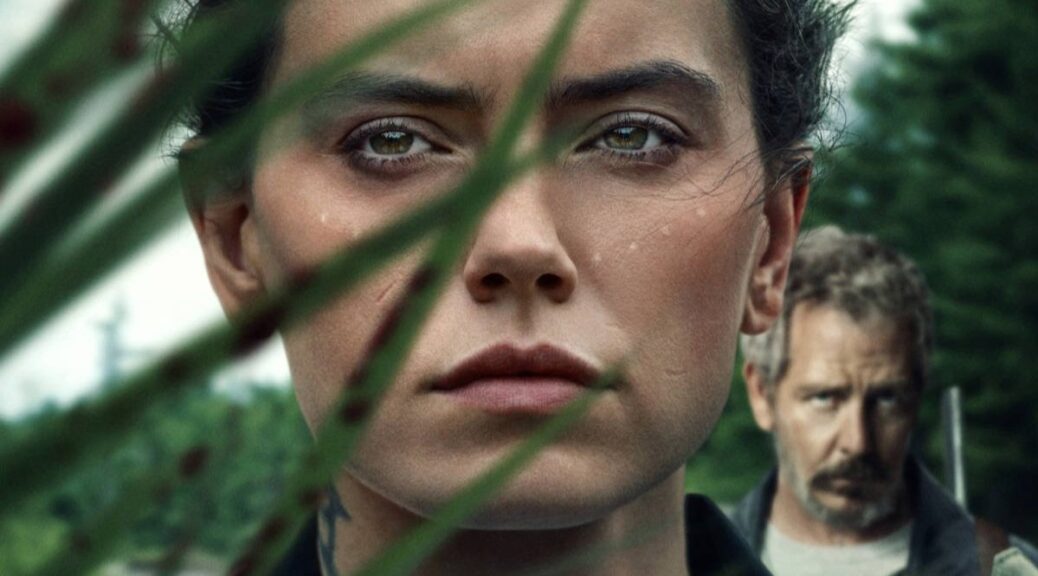The Marsh King’s Daughter
by Hope Madden
From its opening moments, Neil Burger’s The Marsh King’s Daughter establishes a meditative, even spooky mood. And though tensions rise fairly steadily over the following 108 minutes, he never entirely loses that atmosphere.
It’s a mood that suits a film about a young woman (Daisy Ridley) brought up in the most remote part of Michigan’s upper peninsula. Her father (Ben Mendelsohn) raises her to track, hunt, and recognize her place in the natural world.
Young Helena (played in youth by Brooklynn Prince, solid as ever) disapproves of her mother’s dour ways and prefers the company of her doting if strict father. This is why she’s so unhappy to be separated from him when her mother – who’d been kidnapped years earlier and forced to live in isolation – is finally rescued, and takes Helena with her to freedom.
And though Act 2 devolves into a fairly predictable if well shot and well-acted thriller, the effort put into the first act establishes Helena’s central conflict. She loved her dad more than anything in the world and he loved her back, in his way. His way was deeply, criminally wrong. But with Mendelsohn in the driver’s seat, the villainy is more than subtle and sinister enough to amplify an often-missed opportunity. We know why Helena loves and misses her father, regardless of the monster she logically realizes he is.
Mendelsohn is masterful, as is routinely the case. He brings an unnerving calm, a low key but committed sense that his way is the right way, the only way. His quietly impatient performance matches the films slow but deepening sense of unease.
Ridley – wiry, alert but never showy – convinces. Helena is what’s left of the kid whose idyllic childhood turned out to be more nightmare than dream.
None of the other characters have enough richness to feel like more than vehicles for the father/daughter story. Garrett Hedlund is particularly hamstrung by the underwritten “supportive spouse” role, and Gil Birmingham feels especially manhandled as the tragedy waiting to happen.
The most disappointing aspect of The Marsh King’s Daughter is the way the second act bends to predictability. But Burger remembers the strength of his opening when father and daughter return to the woods in the last third, and it’s worth the wait.




